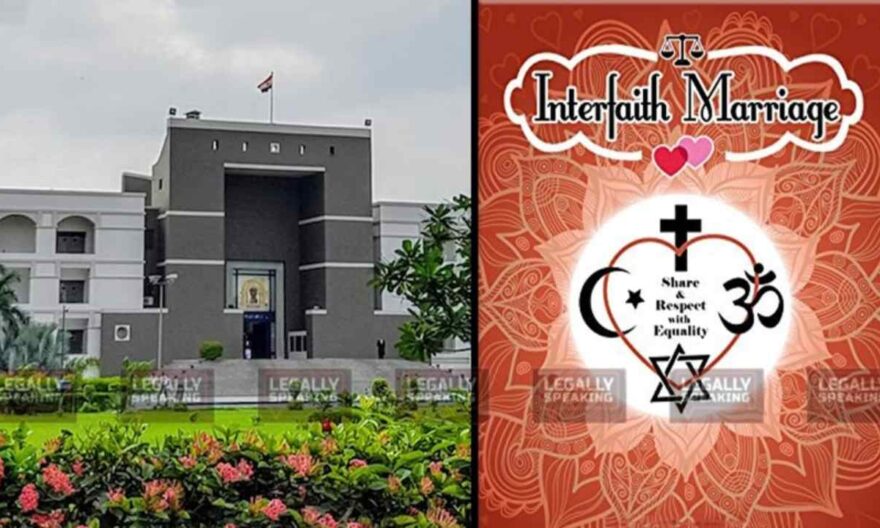
The Gujarat High Court has recently dismissed a habeas corpus petition filed by a woman who sought custody of her adult daughter. The daughter was allegedly coerced into marrying an individual from a different religious background.
A bench comprising Justice Umesh A Trivedi and Justice MK Thakker stated that it was evident that the petitioner’s daughter was of legal age and had willingly entered into a marriage with a person belonging to a different faith.
“It is clear that daughter of the petitioner is major and she has entered into a marriage with a person of different faith. All the documents produced by the petitioner herself is clear to establish that she is major and entered into a marriage, of course with a person of her choice and not the choice of the parents,” the order reads.
As per the petitioner’s account, her daughter went missing on April 5 of this year, prompting a complaint to be filed on April 7.
The petitioner alleged that her daughter sent her an envelope containing the conversion certificate of her husband, who had converted from Islam to Hinduism, along with their marriage certificate. The envelope also included a notice of intended marriage under the Special Marriage Act.
The petitioner further mentioned that the couple had also sent a letter to the Station House Officer (SHO) in their locality, urging the police not to pursue any complaints that the petitioner or her husband might file against them.
The division bench took note of the fact that the petitioner did not disclose the source of the envelope and observed that the postal stamp on it was illegible.
Additionally, the Court stressed that there was no evidence to suggest that the petitioner’s daughter was being coerced or forced into the marriage against her will.
The Court also pointed out that the couple had previously requested police protection, citing threats from the petitioner. The High Court had granted them police protection on May 10. After reviewing the case and examining the documents on record, the Court concluded that there was no basis to infer that the petitioner’s daughter had been abducted against her will or was being unlawfully confined.
Therefore, the bench declined to entertain the habeas corpus petition.




